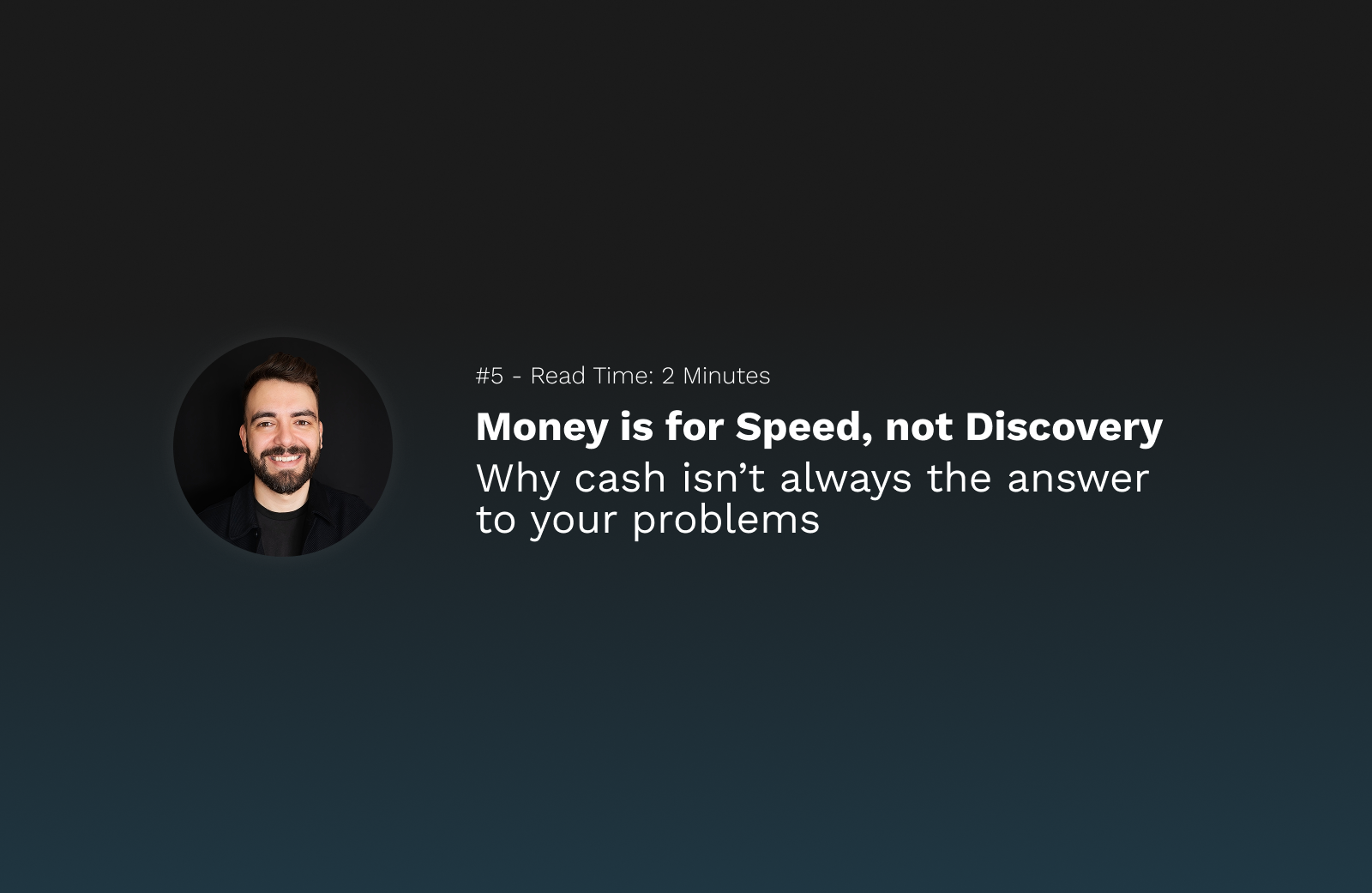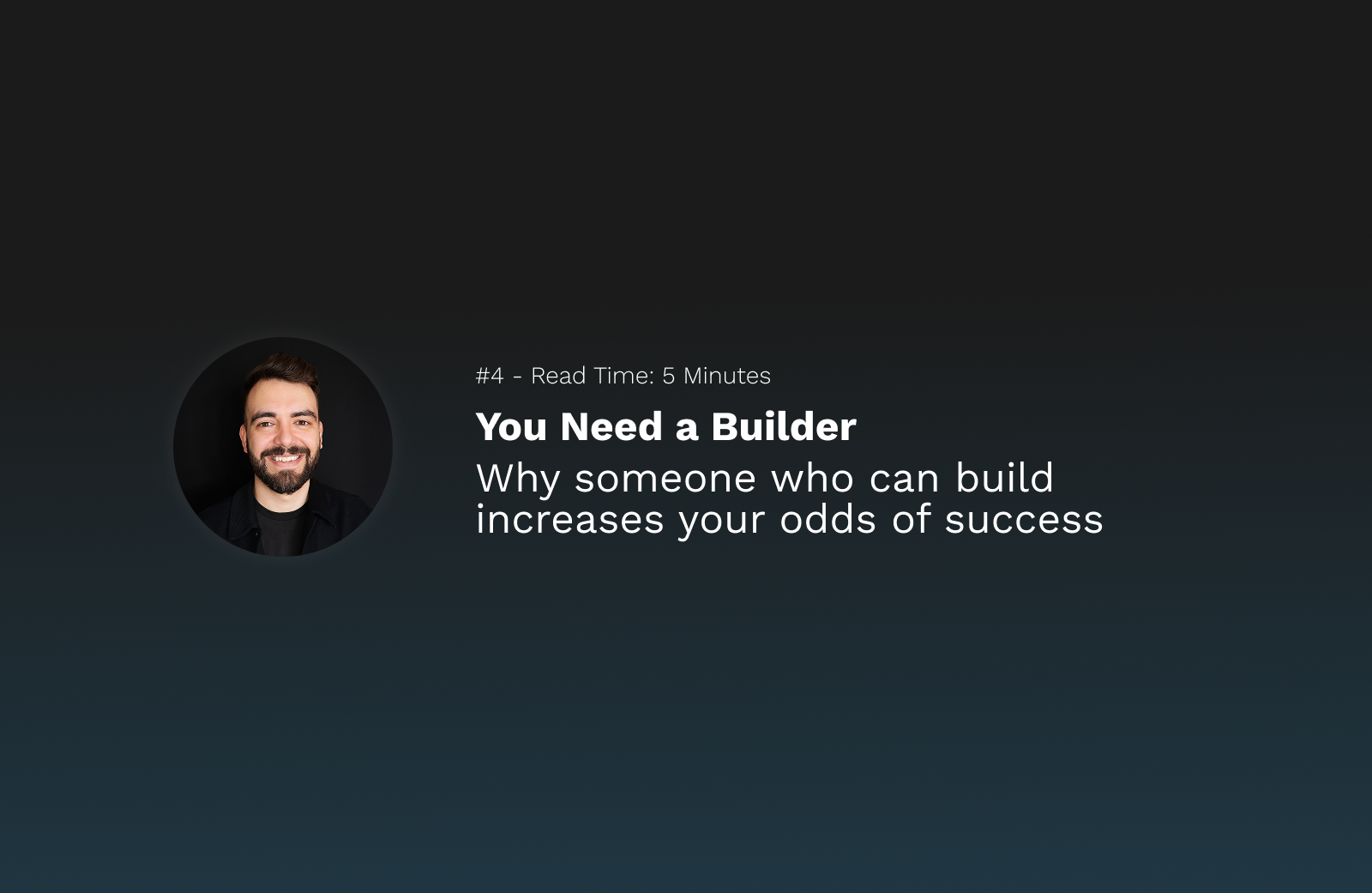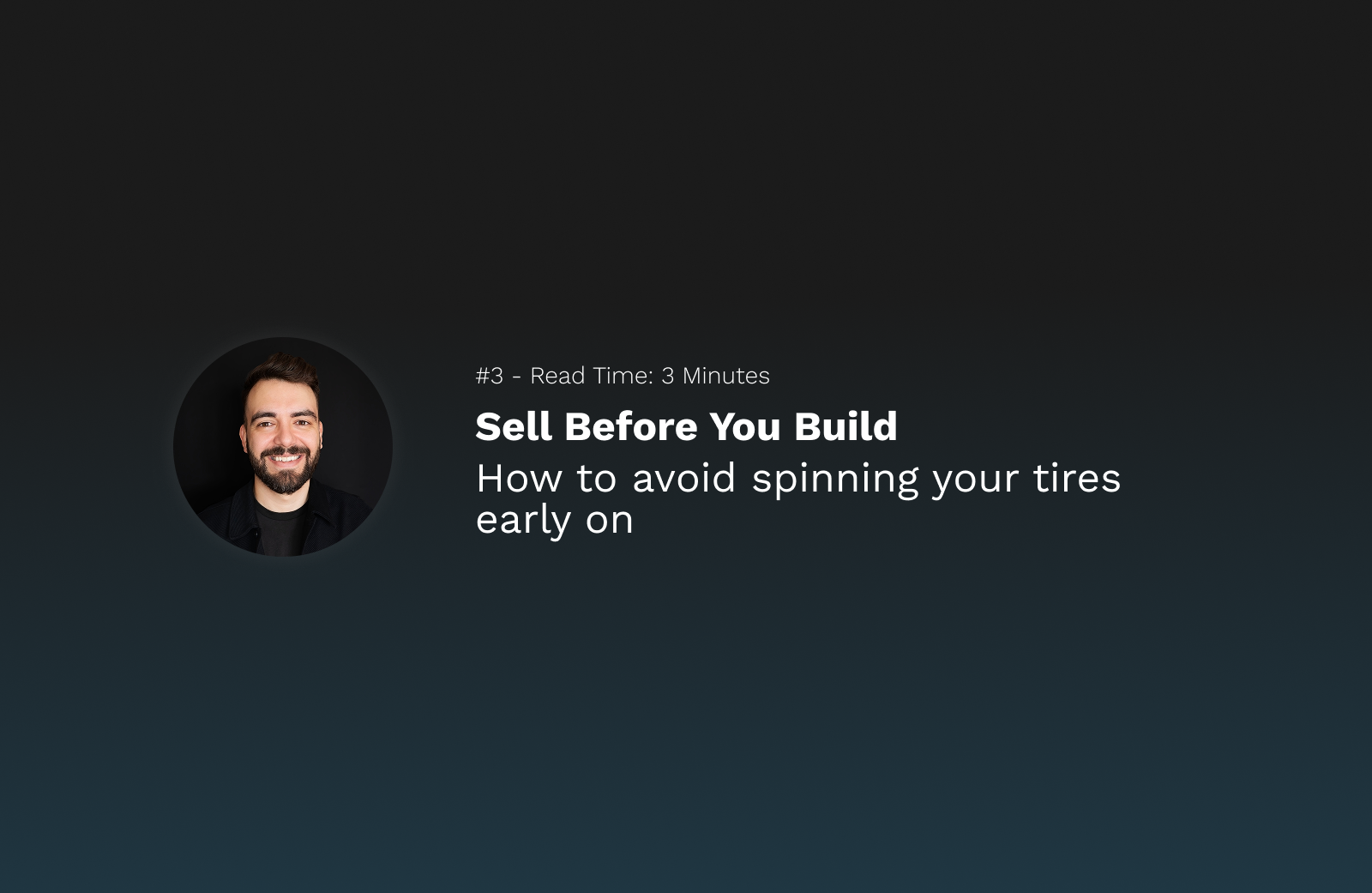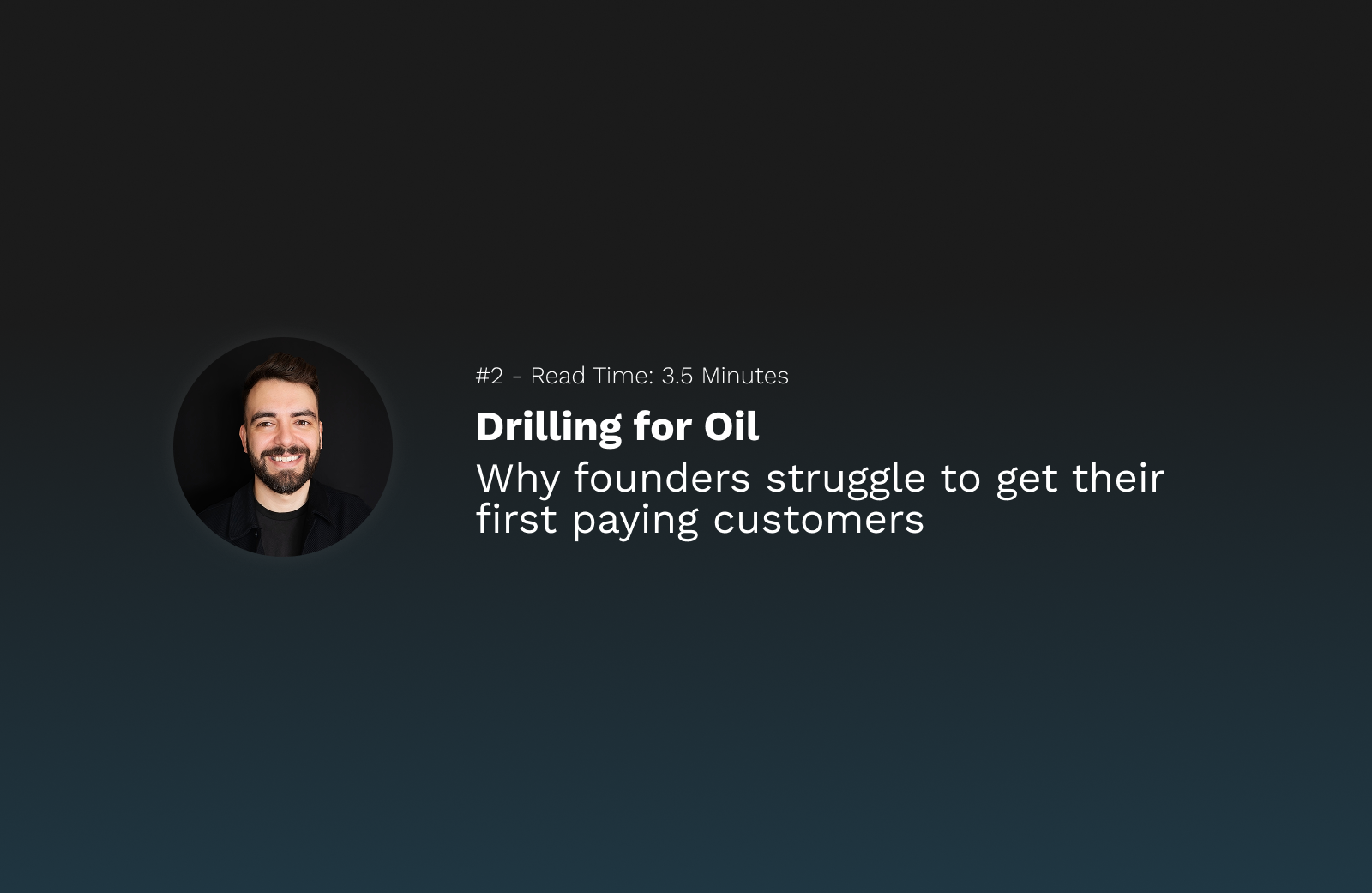Problems Worth Solving
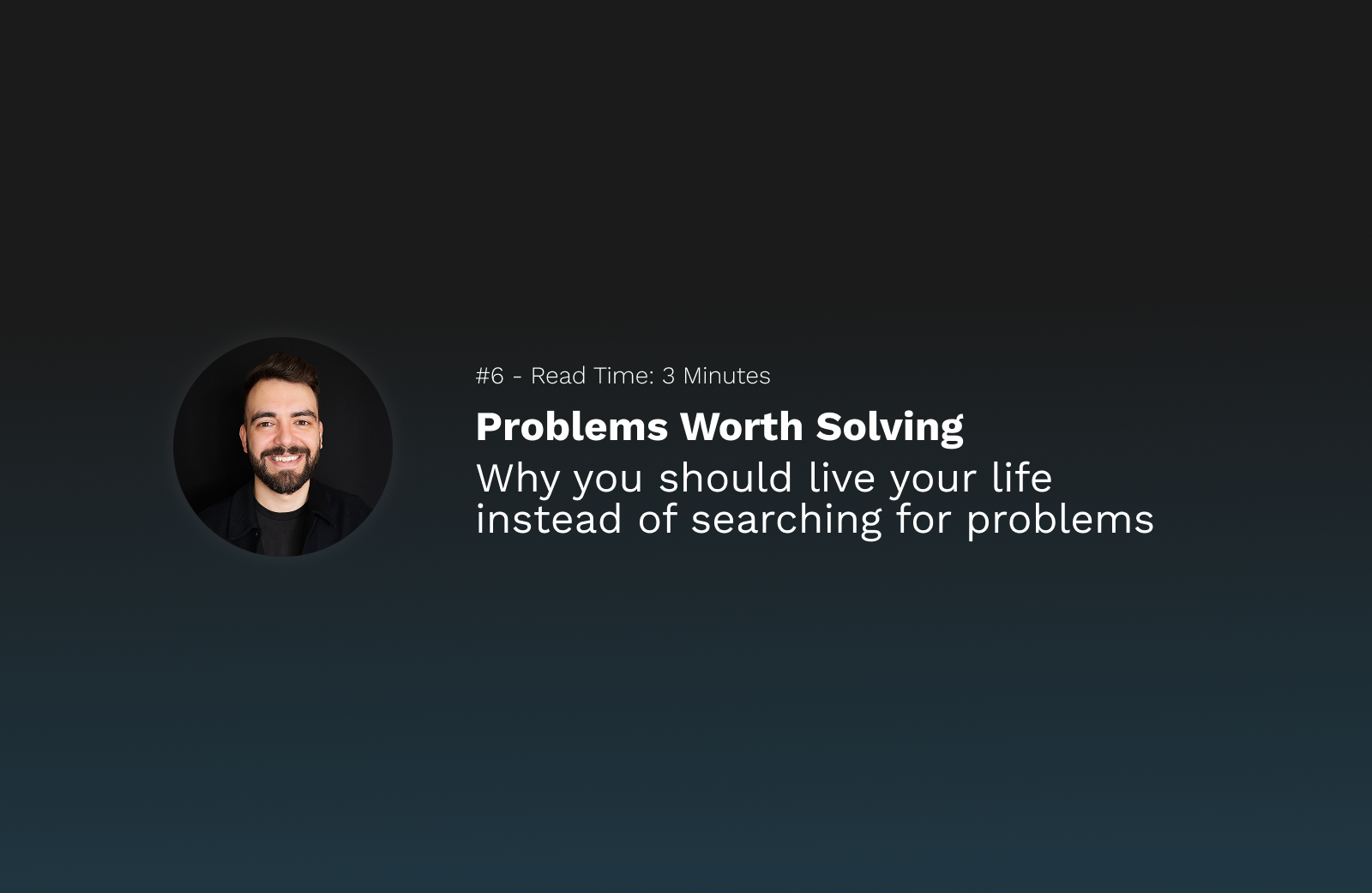
After a short vacation, my mind has been racing.
I keep coming back to a single point of frustration that I find difficult to articulate without sounding like a hypocrite.
Because I am, admittedly, part of the problem.
The issue?
Founders are trying to solve problems they don’t have.
I am guilty of this.
I am compelled to create, like many founders.
And yet, building solutions is not living a life.
And life is the source of problems worth solving.
So you search for other people’s problems.
Problems that you yourself are not qualified to solve.
You may be capable of technically building the solution.
But you do not understand the problem.
But isn’t solving other people’s problems how you grow?
Yes.
I am not saying you shouldn’t solve problems that other people have.
I am saying, you shouldn’t try to solve problems that you yourself (or very close personal relations) do not have.
Otherwise, you’re playing a virtual game of telephone with years of your life (and thousands of dollars).
If you aren’t intimately familiar with the problem itself there is a latency between you and the solution.
I didn’t always think this way
Paul Graham has been preaching this concept for years.
I was skeptical, because in theory you should be able to document and extract the necessary information from users to iterate.
And you can.
But I don’t think it’s fast enough, today.
Things are moving at break-neck speed.
Apps are releasing and becoming obsolete in weeks instead of years.
The time that any founder has to gain momentum and grow quickly is drastically decreasing.
$100,000 in revenue in 6 months used to be applauded.
There are teams hitting those numbers on a weekend.
“That sounds like a good idea”
Too often we rely on what people say.
But what people say is rarely the truth.
The truth passes through a set of unintentional filters that leave out critical information or exaggerate.
We’re human. It’s what we do.
This leads to misguided confidence early.
Yes, customer discovery does help.
But it is not a perfect system.
You can’t know for sure.
The only way you can know for sure is if you yourself (or someone very close to you) has the problem.
You have little to no latency to the problem.
You have the ability to build it and get something that you would use.
It’s surprising how many founders, when asked, don’t actually use their own products on a day to day basis.
That’s crazy.
If you don’t have the problem, how can you evaluate your competitors?
Founders rarely exhaust existing solutions before they start building.
If they don’t have the problem, they can’t exhaust the existing solutions.
They can simply take people at their word.
Founders have a degree of self confidence that they can create a better version of anything.
That is a super power.
It’s also a trap.
If you assume you can create something better by default, you don’t feel pressure to understand if it’s worth building something better.
So what do you do?
Stop looking for problems.
Live your life.
Get a job in an industry that you want to be a part of.
Have enough responsibility and experience in a given field to have a problem that has no solutions that satisfy you.
Become an insider.
Then start building.
An easy rule of thumb?
If you can't use your product on a regular basis - you shouldn't be the person building it.
Until next time, J

